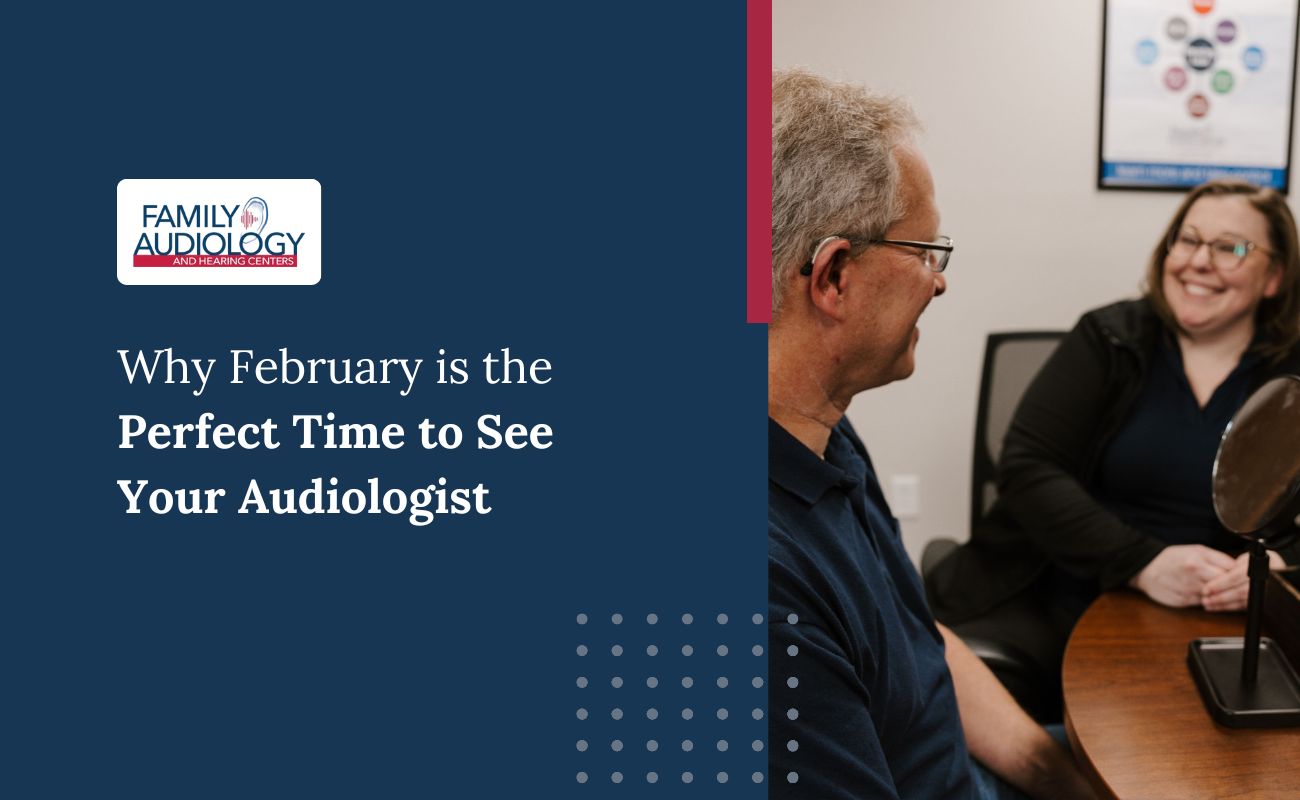Tips for Adjusting to New Hearing Aids



Getting new hearing aids is an exciting step toward better hearing. But let's be honest - the adjustment period can be challenging. Many of our patients at Family Audiology and Hearing Centers tell us it takes time for their brain to relearn how to process sounds they haven't heard clearly in years. We've put together this guide based on our experience helping thousands of patients successfully adapt to their new devices.
Your Brain Needs Time to Adjust
When you first start wearing hearing aids, sounds often seem unusually loud or strange. This happens because your brain needs time to adapt to hearing sounds it hasn't processed clearly in a while.
Most people need a few weeks to a few months to fully adjust. During this time, your brain is working to relearn how to filter, process, and interpret sounds. This is why we recommend a gradual approach to wearing your new devices.
Start in Familiar Places
Begin using your new hearing aids at home or other quiet environments you know well. This lets your brain adjust to amplified sounds without being overwhelmed.
Start with one-on-one conversations with family members whose voices you know. These simple interactions help your brain relearn speech patterns without competing noises.
As you get more comfortable, slowly branch out to more challenging settings like small gatherings or restaurants. This step-by-step approach prevents sensory overload and builds your confidence.
Wear Them Consistently
Consistency makes a huge difference in how quickly you adjust. We suggest starting with 4-6 hours of daily wear in quieter environments, then adding an hour or two each day until you can comfortably wear them all day.
Don't worry if you need short breaks during the first few days - this is normal. Your brain is working harder than usual to process the newly accessible sounds, which can be mentally tiring.
Those Background Noises Will Fade
Many new users are surprised (and sometimes annoyed) by background sounds they suddenly notice. The hum of the refrigerator, water running, footsteps, or paper rustling might seem distractingly loud at first.
These environmental sounds are perfectly normal - people with typical hearing hear them too but naturally filter them out. Your brain will gradually relearn to prioritize important sounds like speech while pushing these background noises into the background where they belong.
If certain sounds really bother you, make a note and tell us at your follow-up. We can adjust your programming while your brain continues to adapt.
Practice Makes Progress
Simple listening exercises can speed up your adjustment:
- Read out loud while wearing your hearing aids
- Listen to audiobooks while following along with the text
- Watch TV with subtitles on
- Practice locating sounds by closing your eyes and identifying where they're coming from
These activities help strengthen the connection between your ears and brain.
Keep Track of Your Experiences
Jot down notes about your experiences during the first few weeks. Which environments or situations are still difficult? Are specific sounds too loud or unclear? When do your hearing aids make the biggest positive difference?
This information helps us make targeted adjustments at your follow-up appointments. It also lets you see how far you've come, which can be encouraging on tough days.
Take Care of Your Devices
Your hearing aids work best when they're properly maintained:
- Wipe them with a soft, dry cloth daily
- Keep them in a dry place when you're not wearing them
- Change batteries regularly or charge rechargeable models as directed
- Keep them away from heat, moisture, and hair products
- Come in for professional cleanings regularly
We'll show you exactly how to care for your specific model when you get them. If you're ever unsure about maintenance, just ask us.
When to Call Us for Help
While some adjustment discomfort is normal, certain issues mean your hearing aids might need professional attention:
- Ongoing physical discomfort or irritation in your ear canal
- Feedback or whistling that doesn't stop when you reposition the aids
- Sound that stays distorted after several weeks
- Volume that's consistently too loud or too soft despite adjusting controls
Our audiologists can fix these issues and ensure your hearing aids fit properly. We use Real Ear Measurements (REM) to verify that your devices are providing the right amplification for your specific hearing loss.
Keep Your Expectations Realistic
Modern hearing aids are amazing devices that significantly improve hearing, but they don't restore hearing to "perfect" or completely eliminate background noise.
The main goals are making speech clearer, helping you participate more easily in conversations, and reconnecting you with important sounds. Understanding these objectives can help you appreciate the substantial benefits your hearing aids provide, even if your hearing isn't exactly the same as before.
Smart Communication Strategies Help Too
Even with top-quality hearing aids, these communication tips can further improve your listening experience:
- Position yourself to see the speaker's face
- Reduce background noise when possible
- Ask people to face you when talking
- Let others know how they can help you hear better
These strategies work alongside your hearing aids to create better listening conditions while you adjust.
Benefits Beyond Just Better Hearing
As you get used to your hearing aids, you'll likely notice positive changes that go beyond just hearing better:
- More energy since you're not straining to hear
- Stronger relationships as communication becomes easier
- Greater confidence in social settings
- Renewed enjoyment of music, nature sounds, and other everyday sounds
- Better mental sharpness as your brain receives more auditory input
These broader benefits can help motivate you during challenging moments.
Keep Your Follow-up Appointments
Successful hearing aid use isn't a one-and-done event - it's an ongoing process. Regular follow-ups are essential for fine-tuning your devices and addressing any concerns.
Most of our patients benefit from visits at 1-2 weeks, 1 month, and 3 months after their initial fitting, with regular check-ups every 6-12 months afterward. These appointments let us assess your progress, make any needed adjustments, and provide support as your hearing needs change over time.
We're Here to Help You Succeed
Everyone's journey to better hearing is unique. At Family Audiology and Hearing Centers, we're committed to supporting you through the entire process. Our team across our 17 Ohio locations understands the challenges of adjusting to new hearing aids and we're here to provide personalized care.
If you're struggling with your new devices or have questions, don't hesitate to call us. Whether you're new to hearing aids or upgrading to a newer technology like Phonak Infinio, Oticon Intent, Starkey Edge AI, Signia IX, or ReSound Vivia, we're dedicated to helping you hear better and reconnect with the sounds and people you love. Contact us today to schedule an appointment at any of our convenient locations.
Discover the Latest Articles
Stay informed with our informative articles.

Why February is the Perfect Time to See Your Audiologist
.jpg)
What Your Audiologist Checks During a Comprehensive Hearing Evaluation

How AI Technology Is Transforming Hearing Aid Performance
Contact your local Hearing Aid Specialists
At Family Audiology and Hearing Centers, we strive to be there for all your family’s hearing needs. Because of this, we have 17 convenient locations in Ohio and Wisconsin for you to visit. See which location is best for you and schedule an appointment today.


